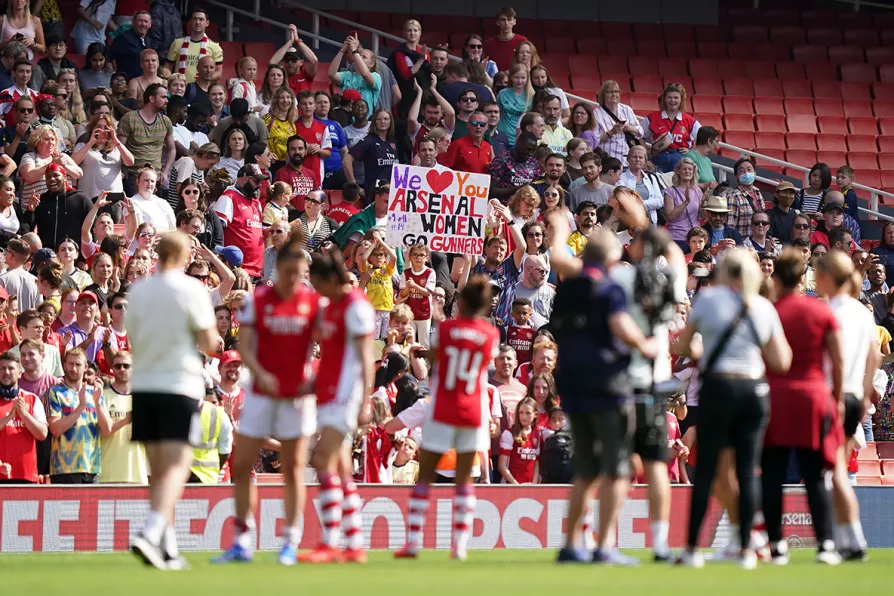New WSL strategy a ‘step in the right direction,’ but still needs work
ADAM MILLINGTON analyses the pros and cons of the FA’s new strategy

 TOP TURNOUT: Arsenal fans support players earlier this season
TOP TURNOUT: Arsenal fans support players earlier this season
IMPROVED working conditions for players, gender equality in coaching and maximising attendances — the FA’s latest three-year plan for women’s football is a step in the right direction.
The 32-page document makes a number of pledges including all managers having the Uefa Pro licence, 50 per cent of managers being female and having all clubs sign up to the Football Leadership Diversity Code.
However, the most ambitious of these pledges is the target of an average attendance of 6,000 fans at each game by 2024.
Similar stories

As the transformation of the game in Europe continues, Umea IK is among the unfashionable clubs of yesteryear who know they can no longer compete













